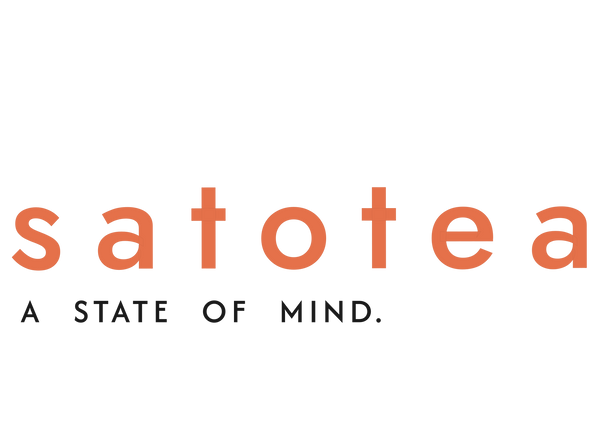喝茶真的有益健康嗎?揭開行銷操作與科學實證的落差
E Nan關於「喝茶是否有益健康」這個話題,近年來在科學研究、產業行銷與大眾認知之間,逐漸形成了一個複雜又交織的討論空間。在這篇文章中,我想從三個面向切入:
1.大型茶品牌,尤其在社群媒體上的行銷策略,如何操弄人們對健康的焦慮。
2.現階段的科學研究,實際上怎麼看待茶與健康的關聯。
3.從我個人的觀點出發,分享茶在身心健康中可能扮演的真正角色。
利用大眾健康焦慮的產業操作
儘管全球平均壽命持續上升,但「健康壽命」——也就是身體與心理機能仍良好的狀態——在許多已開發國家卻逐漸停滯,甚至倒退。根據《全球疾病負擔研究》(Global Burden of Disease Study),現代人活得更久,卻也有更長時間處於亞健康狀態。造成這個現象的主因包括:
•飲食失衡:高糖、高鹽、反式脂肪與過度加工食品導致肥胖、糖尿病與心血管疾病。世界衛生組織(WHO)指出,全球每年約有超過1100萬人死於飲食相關問題。
•菸酒成癮:抽菸每年造成約800萬人死亡,酗酒則約300萬人。
•缺乏運動:與心臟病、第二型糖尿病與部分癌症相關。《刺胳針》期刊指出,每年有超過500萬人死於身體活動不足。
•慢性壓力:被認為是現代疾病的隱性主因,與免疫系統失調與心理健康衰退密切相關。美國CDC將其列為當代健康危機的重要因素。
•社會孤立:長期孤獨感被研究認為對健康的危害等同每天抽15根菸。
這些健康挑戰讓大眾對簡單、自然的健康解法產生極大需求。每個月在搜尋引擎上都有數百萬筆關於健康的關鍵字查詢,如:「天然抗壓方法」、「幫助睡眠的茶」、「減緩焦慮的食物」等,而茶產業當然深知這一點,也相應調整他們的行銷語言。
許多大型茶品牌開始製作看似健康導向的行銷內容,使用如L-茶胺酸(L-theanine)、兒茶素(catechins)、多酚(polyphenols)等科學術語,搭配片面引用的研究數據或模糊不清的聲明,營造出一種「科學支持」的假象。這種做法不但容易誤導消費者,更可能延誤他們尋求適當醫療協助的時機。
想像一位長期失眠或焦慮的人,在網路上看到某款茶標榜「舒壓助眠」,他可能會優先嘗試購買這類產品,而非尋求醫師建議。當預期效果未出現,失望感反而可能加劇原本的症狀。
這樣的行銷策略背後通常有兩種驅動力:
1.知識不足:小品牌或個人創作者可能只是複製網路資訊,並未深究內容真偽。
2.刻意誤導:大型企業則可能有選擇性地解讀研究、避重就輕,只為強化自身產品的健康形象。
然而,當「健康」成為行銷話術的一部分,資訊的不對稱與誤導風險也隨之提高,這不僅傷害消費者的信任,也涉及更深層的倫理問題。
科學怎麼說?關於茶與健康的現有研究
茶葉中確實含有多種生理活性成分,具潛在健康效益。科學研究目前對以下幾個面向給出了相對積極的回應:
•心理健康:茶特有的L-茶胺酸能促進α波腦部活動,具有放鬆神經系統的作用而不引起嗜睡。
•心血管健康:茶中類黃酮與兒茶素被發現有助於提升血管內皮功能、降低壞膽固醇(LDL)與血壓。
•睡眠品質:洋甘菊、香蜂草等草本茶具溫和鎮靜效果,L-茶胺酸亦有助於降低壓力荷爾蒙(如皮質醇)濃度,間接改善睡眠。
•認知功能:長期研究指出,每日飲茶者罹患認知退化(如失智症)的風險較低。
•抗發炎與抗氧化:多酚類物質可調節慢性低度發炎,對抗自由基傷害,與多種慢性病有關。
•癌症預防:實驗室研究發現茶的某些成分可抑制腫瘤生長或增強化療效果,但人體研究仍未有明確定論。
總體而言,科學界目前傾向的共識是:茶的確可能帶來某些正面效果,但這些並非立即或絕對,而是漸進且有限的潛在益處。許多研究屬於相關性(correlational),而非因果性的臨床試驗,長期且大規模的隨機對照研究仍相當稀少。
此外,研究也強調了劑量與頻率的重要性。例如2021年的一項研究顯示,年長者每週飲用六天、每日約800毫升的茶,其罹患憂鬱症的機率下降20%。另一項研究則發現,只有那些持續飲茶超過20年的族群,健康改善才顯著。
這些結果都指向一個觀點:茶的效益來自於日積月累,而非偶爾一杯。
我的觀點:真正的價值不只是化學成分
許多人對茶的認知停留在其化學組成——L-茶胺酸、茶多酚、抗氧化物等等。但我認為,茶的真正價值,其實不只在成分,更在於「喝茶這件事本身」所帶來的身心轉變。
當我們懷著覺知與意圖泡茶、喝茶,這個過程本身就成為一種靜心練習。研究也支持這種想法:2020年《Psychological Science》的研究指出,進食或飲用前的簡單儀式能顯著提升專注力與滿足感,關鍵不在於食物本身,而是當下的心境與儀式所創造的空間。
靜靜坐下,專注於一杯茶,其實是與自己誠實對話的開始。我們不自覺地會思考:我的飲食是什麼樣?我的生活步調是否太快?我是不是長期處於壓力中?這些覺察的瞬間,往往才是真正改變的起點。
健康不是靠任何一款產品速成。即使是含有最強效成分的茶,也無法取代覺察、行動與自我改變的力量。
結語:回到一杯茶,重新看見生活本質
蘇格拉底說過:「沒有經過反思的生命,不值得過。」
而我想說:沒有被覺察的健康,也不會持久。
泡杯茶,坐下來,不急著給自己答案。
只要你願意開始觀察自己,改變已經發生。
Research sources for the article / video:
New Perspectives on Sleep Regulation by Tea: Harmonizing Pathological Sleep and Energy Balance under Stress, (2022)
Long-term consumption of green tea protects the mental health of middle-aged and older adult men by improving inflammation levels, (2025)
Type of tea consumption and depressive symptoms in Chinese older adults, (2021)
Association between dietary caffeine, coffee, and tea consumption and depressive symptoms in adults: A systematic review and dose-response meta-analysis of observational studies, (2023)
Association between tea consumption and depressive symptom among Chinese older adults, (2019)
Associations between tea-drinking habits and health-related quality of life in Chinese adults: a mediation analysis based on sleep quality, (2023)
L-Theanine: A Unique Functional Amino Acid in Tea (Camellia sinensis L.) With Multiple Health Benefits and Food Applications, (2022)
Protective effects and molecular mechanisms of tea polyphenols on cardiovascular diseases, (2023)
Versatile Effects of GABA Oolong Tea on Improvements in Diastolic Blood Pressure, Alpha Brain Waves, and Quality of Life, (2023)
Tieguanyin Oolong Tea Extracts Alleviate Behavioral Abnormalities by Modulating Neuroinflammation in APP/PS1 Mouse Model of Alzheimer’s Disease, (2021)
